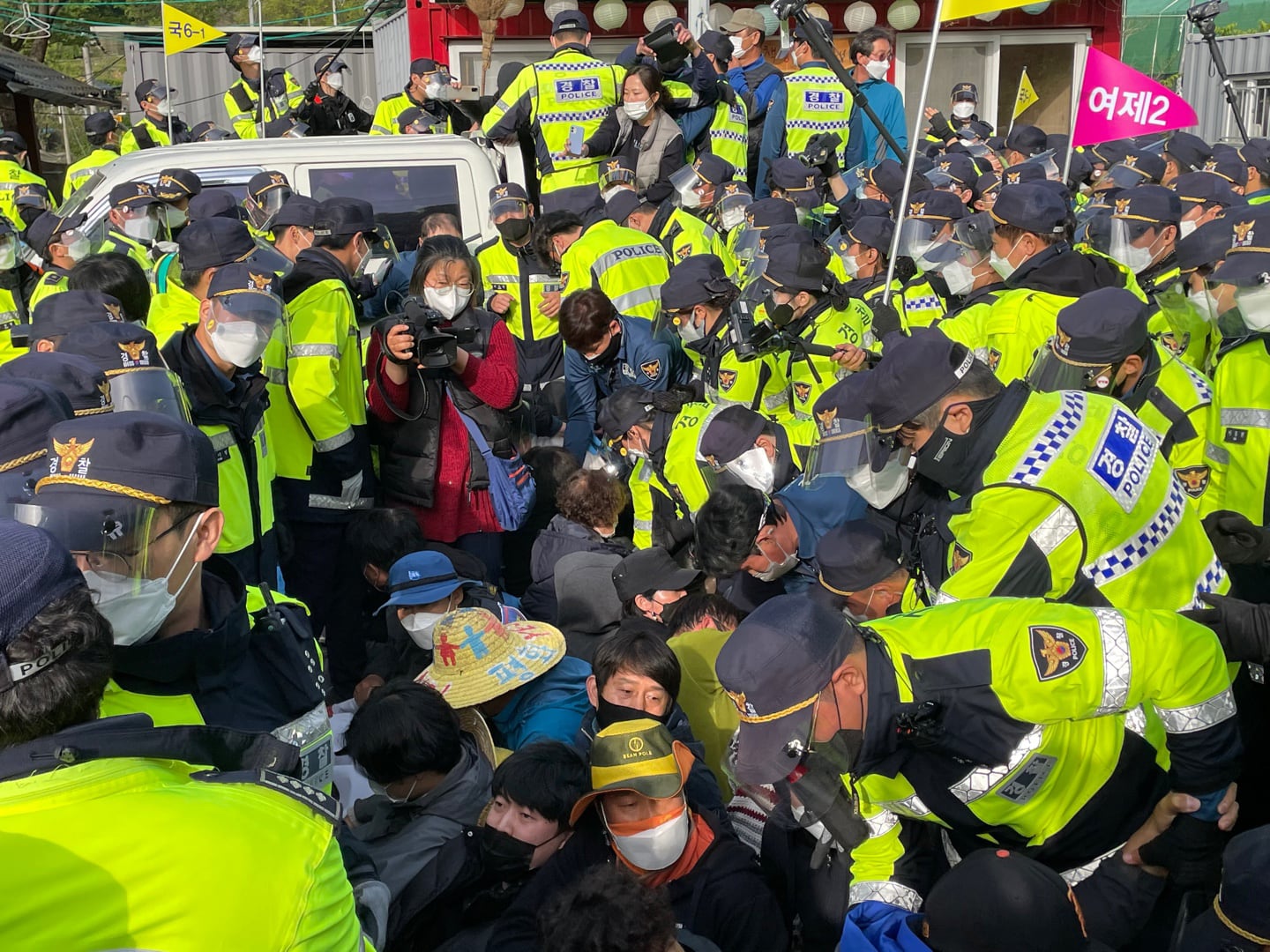Prosecutors have charged ex-high-ranking national security officials from the Moon Jae-in government with reportedly disclosing confidential information to organizations opposing the installment of the U.S. Terminal High Altitude Area Defense (THAAD) system, apparently aiming to hinder its complete setup.
Chung Eui-yong, who previously led the presidential National Security Office, along with his ex-deputy Suh Choo-suk, faced charges but remained free from detention. According to prosecutors, Suh allegedly directed subordinates on multiple instances—no fewer than eight—to disclose confidential information to activist organizations. This included specifics about the movement of THAAD equipment and building supplies.
Included among these groups were three organizations that had been labeled by South Korea’s Supreme Court as pro-North Korean entities, such as the Pan-Korean Alliance for Reunification, an organization that supports reunification under North Korean rule.
The disclosed information allegedly encompassed lesser military classified details. This essentially resulted in a setback for national security caused by their own actions.
The approval for THAAD’s deployment occurred during President Park Geun-hye’s administration as a response to the escalating nuclear and missile capabilities of North Korea. This decision sparked strong disapproval from China, leading to extended demonstrations by anti-THAAD protesters at the Seongju base in southern South Korea. These individuals voiced worries about potential health risks associated with the radar emissions produced by the system.
In 2020, as tensions were rising, South Korean and U.S. military personnel initiated a secret transportation effort to prevent conflicts. According to prosecutors, Suh alerted demonstrators beforehand, enabling them to obstruct the routes using cars and hinder the operation. Instead of suppressing dissent, officials from the Moon administration actually supported it.
At that point, the Moon administration had basically dismissed further THAAD installations, joining the U.S. missile defense system, and establishing a tripartite military pact with the United States and Japan—all stances perceived as compromises to appease Beijing. These breaches of confidentiality were undoubtedly aimed at postponing THAAD deployment consistent with these non-binding agreements.
Even though numerous tests confirmed that the radar did not pose any threat to human health, the Moon administration allegedly suppressed these findings due to concerns that they might weaken public resistance against the system. This led to a postponement of over five years before complete deployment could be achieved. By taking this action, the administration inadvertently compromised South Korea’s missile defense capabilities in an attempt to placate China.
The THAAD base was ultimately finished during President Yoon Suk-yeol’s tenure. It now falls upon the courts to reveal the complete truth and make sure those accountable face consequences.

